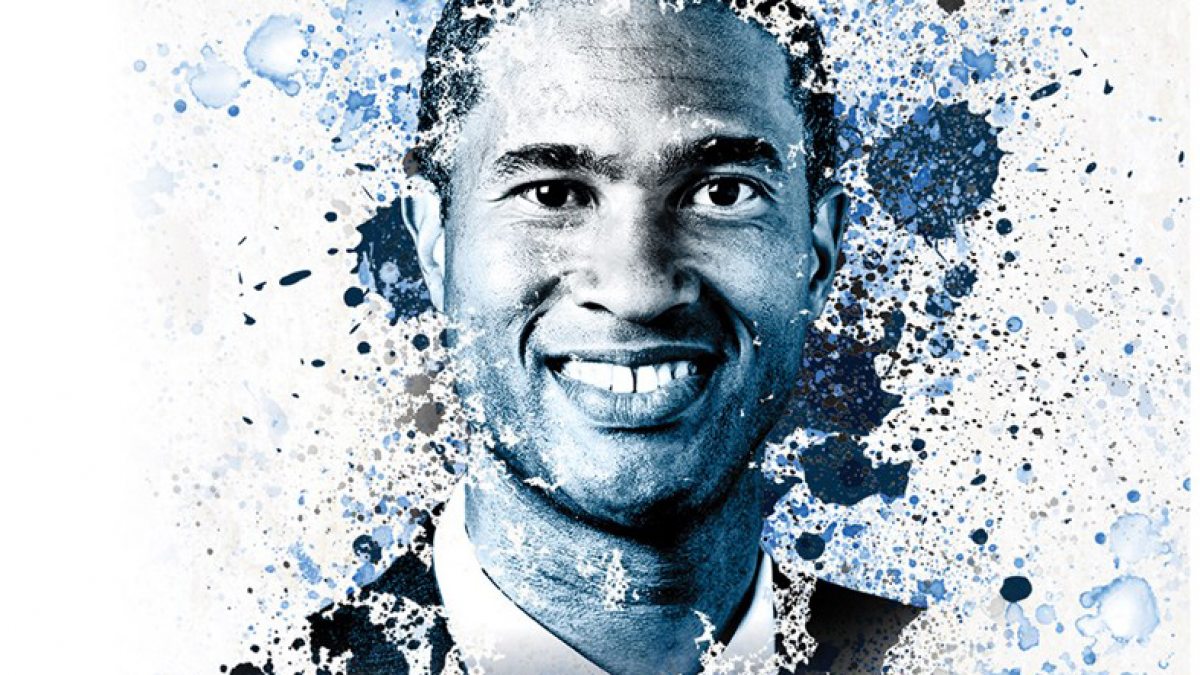Tar Heel Trailblazer: Peter Henry
Before the age of 40, Peter Henry was named Dean of New York University. But it was his experience and the education he received at Carolina as a Morehead-Cain Scholar that laid the foundation for a professional career devoted to helping people

Peter Henry’s North Carolina football career might not have gone as he expected when he walked on in 1987.
But despite playing just two years for the Tar Heels, he said that experience and the education he received under a Morehead-Cain Scholarship laid the foundation for a professional career that’s been devoted to helping people.
An expert on global economy, Henry has always been driven to assist developing nations, like his native Jamaica. Most recently, his focus has been on needy students looking to attend New York University’s business school, where he became dean in 2010. He accepted the job a few days before his 40th birthday, making him the youngest person ever to hold the position.
For all this, he’s been named a Tar Heel Trailblazer.
“Nothing I’ve done since being at Carolina is as hard as getting through two-a-days …” Henry said. “Having to compete against those guys in practice made me a better person. There’s no challenge that I’ve faced in my professional career, whether it’s been as a graduate student, as a professor or as dean, that I felt like I didn’t have the mettle it took to meet it.”
Henry comes from a long line of educators.
He said his paternal grandparents, who never could attend college, were school teachers in rural Jamaica. His mother and father were first-generation college students who received doctorates from the University of Chicago and the Illinois Institute of Technology, respectively.
It didn’t take long for Henry to realize the value of education. But perhaps the biggest lesson of his life came at the age of 8, when his family moved from Jamaica to Wilmette, Illinois.
“I noticed there weren’t so many poor people around,” Henry said, “and I just started wondering, ‘Why is it that in the United States people are on average so much better off than they were in Jamaica?’ And that kind of got me thinking about economic issues.”
He played baseball and basketball for most of his life. He longed to play football, too, but his father restricted him from doing so until Henry’s senior year of high school. Still, he said that lack of experience didn’t prevent Stanford, Wisconsin and Harvard from recruiting him as a wide receiver and a free safety.
Henry said he expressed interest in playing football at Carolina. But when he traveled to Chapel Hill to interview for the Morehead-Cain Scholarship, the Tar Heels hadn’t shown any interest.
“I actually turned down a couple of football offers to interview for the Morehead at Carolina, which my father had some real misgivings about,” Henry said. “But my mother insisted that I go interview for it.”
He dreamed of going to Stanford. He didn’t earn a scholarship from there, though, and he opted to walk on the Tar Heel football team after receiving the Morehead-Cain Scholarship.
Henry started his college career as a receiver. He said he then moved to tight end toward the end of his freshman year. Although he added about 10 pounds between his freshman and sophomores seasons, a preseason shoulder injury limited him and later required surgery.
He finally made the traveling team late in his sophomore season. But the next week, the coaching staff approached him about moving to outside linebacker. A decision was needed by the end of the season. His choice, while difficult to admit, was clear.
“Given what was going to be required in terms of the surgery on my shoulder and the investment of time,” Henry said, “I decided for me it was going to be a better decision to focus on putting my energy elsewhere.”
He stayed connected to the football team as a tutor. He served in the same role and as a mentor for local students through his involvement with the Campus Y. He wrote for Black Ink, became a resident adviser and participated in intramural sports. In 1991, he lost to former football teammate Eric Blount in the final round of the campus-wide slam dunk competition.
All the while, Henry’s interest in economics grew.
After taking one economics class as a freshman, he enrolled in honors macroeconomics with professor Roger Waud as a sophomore. The course taught Henry everything he wished to understand – such as interest rates, exchange rates and investments.
That same year, he met William Darity Jr., then a Carolina economics professor and now a professor of public policy and African and African-American studies at Duke University. Henry formed relationships with both professors. He often wrote to them during the summer of 1989, when he was working in New York.
“I told them I was thinking of maybe going to graduate school in economics,” Henry said. “Professor Darity sent me a bunch of articles he had written, and I thought it was the neatest thing ever that you could use economics, macroeconomics and math to analyze these questions about countries’ growth trajectories, unemployment, international trade. I was sold after that.”
He graduated with a bachelor’s degree in economics in 1991. From there, he earned a bachelor’s degree in mathematics from Oxford University, where he was a Rhodes Scholar, and then a doctorate in economics from the Massachusetts Institute of Technology.
To read more of this story about Henry, visit GoHeels.com.




